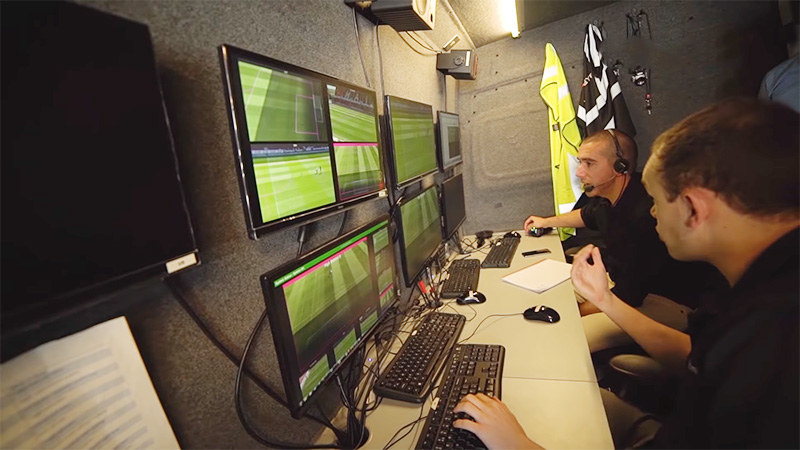Soccer assistant referees, also known as linesmen or ARs, play a crucial supporting role in the beautiful game, assisting the main referee in officiating matches and upholding the integrity of fair play.
Positioned along the touchlines and goal lines, assistant referees are entrusted with specific responsibilities that contribute to the accuracy of decision-making on the field.
From calling offside offenses to signaling when the ball is out of play, their keen observations and effective communication are essential in ensuring the smooth flow of the game and maintaining the spirit of competition.
This introduction delves into soccer assistant referee roles, shedding light on their significance in the officiating team and their unwavering dedication to preserving the essence of soccer as a sport of honesty and sportsmanship.
What Are Soccer Assistant Referee Roles?
Soccer assistant referees, commonly referred to as linesmen or assistant referees (ARs), play a crucial role in officiating soccer matches alongside the main referee.
Their responsibilities involve assisting the referee in making accurate decisions and ensuring the fairness and integrity of the game.
Here are the key roles of soccer assistant referees:
Offside Decisions
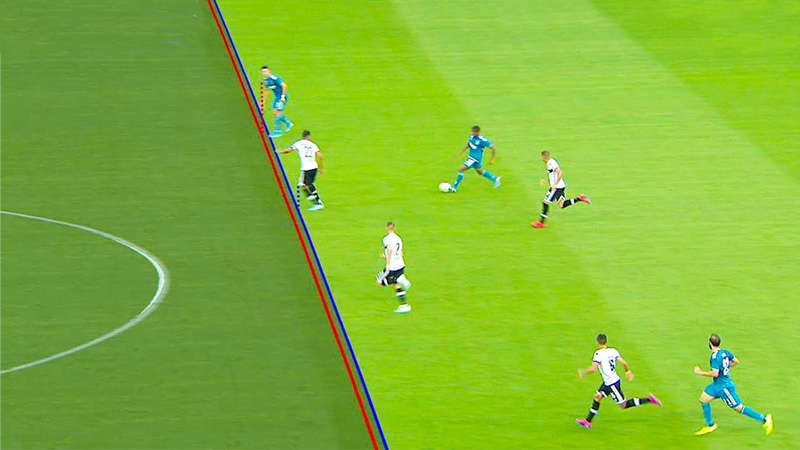
One of the primary responsibilities of assistant referees is to help the main referee make offside decisions.
They position themselves along the touchlines, keeping an eye on the last defender and the second-to-last defender, and raise their flag when an attacking player is deemed offside.
This assistance is vital in correctly determining whether an attacking player is in an offside position and should be penalized.
Ball Out of Play
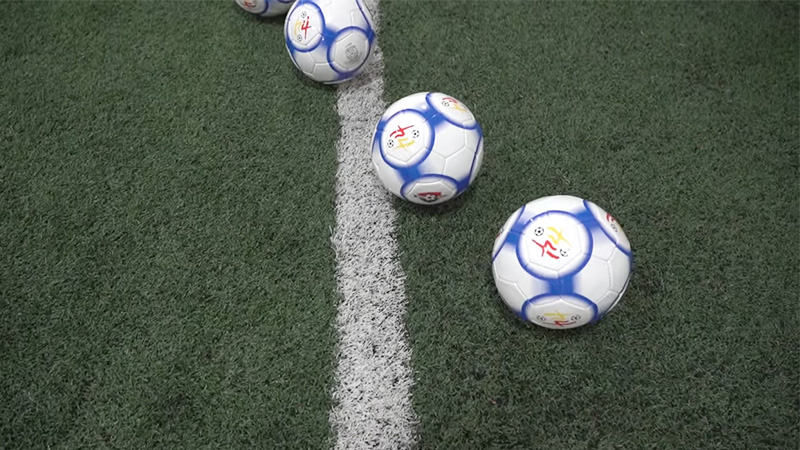
Assistant referees also assist in determining when the ball has completely crossed the touchline or goal line.
They signal by raising their flag to indicate if the ball has gone out of play, helping the main referee decide whether to award throw-ins, goal kicks, or corner kicks.
Fouls and Misconduct
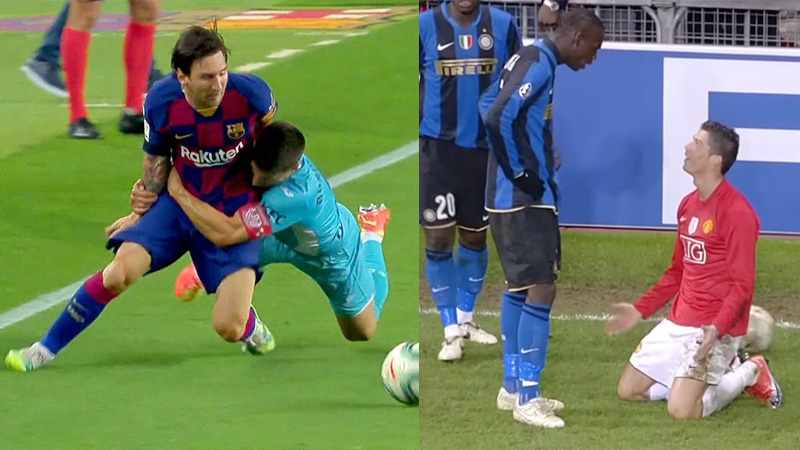
Assistant referees have the duty to flag any fouls or misconduct they observe, especially when they occur outside the main referee’s field of vision.
They help the referee identify incidents such as handling offenses, fouls, and other infringements that may require disciplinary action.
Signals and Communication
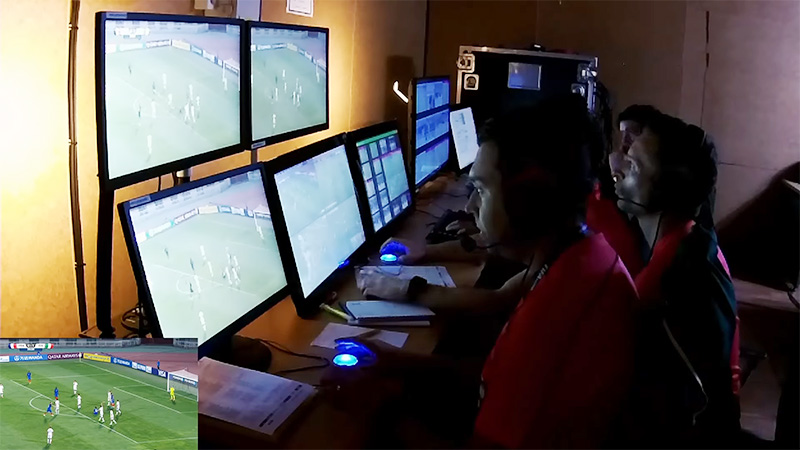
During the match, assistant referees use specific hand signals to communicate with the main referee and each other.
These signals ensure efficient and clear communication, allowing for quick decision-making and coordination between the officiating team.
Goal Decisions
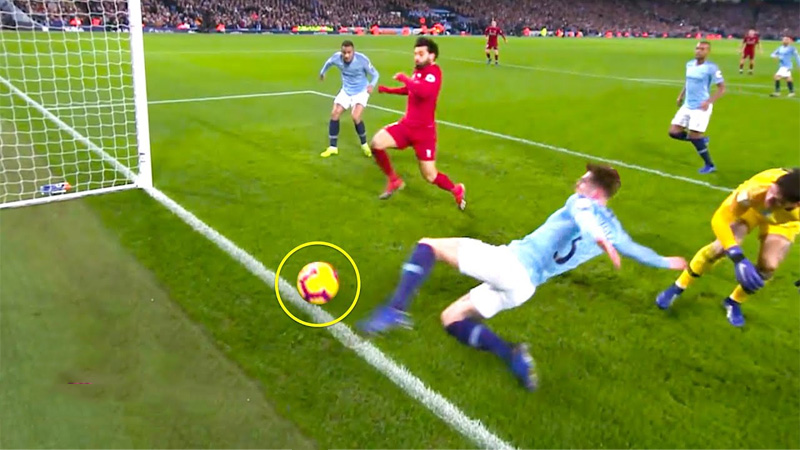
In situations where the ball crosses the goal line, assistant referees assist the main referee in determining whether a goal has been scored.
They position themselves on the goal line to provide an optimal view and help decide if the ball has entirely crossed the line between the goalposts.
Soccer assistant referees play a vital supporting role in officiating matches, helping the main referee with offside decisions, identifying fouls and misconduct, signalling when the ball is out of play, and assisting with goal decisions.
Their collaboration ensures that the match is officiated accurately and fairly, upholding the spirit of the game and contributing to the overall success of the match.
History Of The Assistant Referee In Soccer
The history of the assistant referee, also known as the linesman or assistant referee (AR), in soccer dates back to the early development of the sport. The role of the assistant referee has evolved over time, and its significance in officiating matches has become integral to the game’s integrity and fairness.
Here is a brief history of the assistant referee in soccer:
Early Origins
The concept of using assistant referees in soccer can be traced back to the late 19th century.
As the game’s popularity grew, organizers recognized the need for additional officials to help the main referee manage matches effectively.
Evolution of Offside Rule
The introduction of the offside rule in soccer in the 1860s led to the need for assistant referees to assist the main referee in making accurate offside decisions.
Early assistant referees would position themselves along the touchlines and raise a flag when they spotted an offside offence.
Formal Recognition
The role of the assistant referee became more formalized in the early 20th century. Soccer governing bodies, such as The Football Association (FA) in England, officially recognized the use of assistant referees to assist the referee in making decisions during matches.
Introduction of Signals
As the role of assistant referees became more established, standardized signals were introduced to facilitate communication between officials.
Hand signals, such as raising the flag for offside or indicating the ball is out of play, were adopted to ensure consistency and clarity in officiating decisions.
Video Technology
In recent years, the advent of video technology, such as Video Assistant Referee (VAR) systems, has further revolutionized the role of assistant referees.
AR allows assistant referees to review critical incidents and provide additional information to the main referee to make more accurate decisions.
Increased Responsibilities
Over time, the responsibilities of assistant referees have expanded beyond offside decisions.
They now play a crucial role in assisting with goal decisions, fouls, and other match incidents, providing valuable support to the main referee.
The history of the assistant referee in soccer reflects the sport’s evolution and the recognition of the need for additional officials to ensure fair play and accurate officiating.
From its early origins to its current role in modern soccer, the assistant referee’s contributions have become an integral part of the game’s officiating process, enhancing the integrity and fairness of matches.
Can The Head Referee Overrule The Assistant Referee?
Yes, the head referee, also known as the main referee or centre referee, has the authority to overrule the assistant referee in certain situations during a soccer match.
While assistant referees play a crucial role in assisting the head referee in making accurate decisions, the final decision-making authority ultimately rests with the head referee.
Here are the key points on how the head referee can overrule the assistant referee:
Discretionary Decision
The head referee has the discretion to overrule the assistant referee’s decision if they have a different view of the incident or believe the assistant referee may have missed a crucial detail.
The head referee’s position on the field may provide a better perspective, and they may choose to rely on their judgment to make the final call.
Clear Communication
Effective communication between the head referee and assistant referees is vital. If an assistant referee signals for an offside, foul, or other decision, but the head referee has a different opinion, they may choose to have a brief conversation to clarify the situation before making the final decision.
Use of Video Technology
In some competitions where Video Assistant Referee (VAR) technology is in place, the head referee can review incidents independently and use the video footage to overrule the assistant referee’s decision if they find conclusive evidence to support a different call.
Respect for Assistant Referees
Overruling an assistant referee’s decision is a significant step that head referees take with caution. They understand the importance of collaboration and respect the assistant referees’ input while making decisions that uphold the integrity of the game.
Clarifying Misunderstandings
At times, assistant referees may make a call based on limited information or a misunderstanding of an incident.
The head referee can intervene to clarify the situation and, if necessary, overturn the decision to ensure the correct outcome.
In conclusion, while assistant referees provide valuable support in officiating soccer matches, the head referee maintains the final authority to overrule their decisions when needed.
The head referee’s position, judgment, and use of video technology, when available, play significant roles in ensuring accurate and fair decision-making during the game.
Effective communication and mutual respect among officials are essential in achieving the ultimate goal of upholding the laws of the game and promoting fair play on the field.
Is It Harder To Be An Assistant Referee?
Whether being an assistant referee is harder than being the main referee can be subjective and may depend on individual perspectives and experiences.
Both roles come with unique challenges and responsibilities that require specific skills and attributes.
Here are some factors to consider when evaluating the difficulty of being an assistant referee:
Decision-Making Pressure
The main referee often faces more significant decision-making pressure, as they are responsible for making critical calls, including fouls, penalties, and sending-offs.
Assistant referees, on the other hand, assist with specific aspects of the game, such as offside decisions and ball-out-of-play situations.
Constant Movement
Assistant referees need to maintain constant movement along the touchlines and goal lines to ensure they are well-positioned to make accurate calls. This requires excellent physical fitness and stamina.
Focus and Concentration
Both main and assistant referees require high levels of focus and concentration throughout the match.
Assistant referees must be attentive to offside positions, ball-out-of-play situations, and other incidents, all while coordinating with the main referee.
Communication and Coordination
Assistant referees must effectively communicate with the main referee and each other to ensure decisions are made collaboratively and efficiently. Coordination and clear communication are crucial for maintaining consistency in officiating.
Offside Calls
Offside decisions can be challenging for assistant referees, as they need to judge the exact moment the ball is played and the attacker’s position in relation to the second-to-last defender.
Making accurate offside calls requires sharp observational skills and split-second judgment.
Ultimately, both the main referee and assistant referees contribute equally to the proper officiating of a soccer match. Each role presents its own set of challenges and requirements.
Some may find being the main referee more challenging due to the higher level of decision-making responsibility, while others may find the constant movement and offside judgments of the assistant referee role more demanding.
Overall, both roles require dedicated training, experience, and a passion for the sport to be effective and successful in officiating soccer matches.
FAQ
What is the role of a soccer assistant referee?
Answer: The role of a soccer assistant referee, also known as a linesman or AR, is to assist the main referee in officiating the match. They are responsible for calling offside offences, signalling when the ball is out of play, assisting with goal decisions, and communicating with the main referee to ensure accurate decision-making on the field.
How do assistant referees call offside offences?
Answer: Assistant referees use their positioning and keen observation skills to determine if an attacking player is in an offside position when the ball is played to them.
What is the importance of ball out-of-play signals from assistant referees?
Answer: Assistant referees signal when the ball has fully crossed the touchline or goal line to help the main referee make decisions regarding throw-ins, goal kicks, or corner kicks. Their clear signals ensure that the appropriate restart is awarded to the relevant team.
How do assistant referees assist with goal decisions?
Answer: Assistant referees position themselves along the goal line, near the goalposts, to have a clear view of whether the ball has entirely crossed the goal line between the goalposts.
What other responsibilities do assistant referees have besides offside and ball out-of-play decisions?
Answer: Assistant referees also assist the main referee in identifying fouls and misconduct that may have occurred outside the main referee’s field of vision. Their coordination and communication with the main referee contribute to consistent and accurate officiating throughout the match.
Conclusion
Soccer assistant referees epitomize the notion of teamwork on the field, working in harmony with the main referee to create a well-coordinated officiating unit.
Their roles extend beyond merely signalling offside decisions or ball-out-of-play situations; they serve as the eyes and ears of the main referee, providing critical support in making accurate calls.
Through their positioning, sharp observations, and clear communication, assistant referees uphold the fundamental principles of fair play and ensure that the laws of the game are applied consistently.
Their unwavering dedication and commitment to soccer’s integrity make them unsung heroes on the pitch, playing a pivotal role in the world’s most beloved sport and preserving its beauty for players, fans, and spectators alike.

